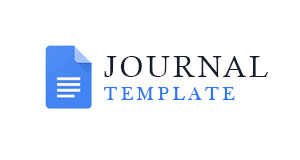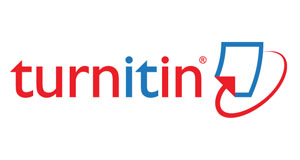ISLAMIC WEALTH MANAGEMENT DURING THE COVID-19 PANDEMIC
Abstract
Full Text:
PDFReferences
Abdullah, A., & Muhammad, J. (2013). Ethical Values in Islamic Financial Planning. Jurnal Pengurusan, 38, 133–140.
Abdullah, M. (2019). Waqf and trust: the nature, structures and socio-economic impacts. Journal of Islamic Accounting and Business Research, 10(4), 512–527. https://doi.org/10.1108/JIABR-10-2016-0124
Ahmed, B. O., Johari, F., & Wahab, K. A. (2017). Identifying the poor and the needy among the beneficiaries of zakat Need for a zakat-based poverty threshold in Nigeria. International Journal of Social Economics, 44(4), 446–458. https://doi.org/10.1108/IJSE-09-2015-0234
Al-Abbadi, A. H., & Abdullah, A. (2017). Modeling Psychology in Islamic Wealth Management. International Journal of Economics and Finance, 9(10), 64. https://doi.org/10.5539/ijef.v9n10p64
Al-Faizin, A. W., & Akbar, N. (2018). Tafsir Ekonomi Kontemporer: Menggali Teori Ekonomi dari Ayat-ayat Al-qur’an. Jakarta: Gema Insani.
Al-Mamun, A., Haque, A., & Jan, M. T. (2019). Measuring perceptions of Muslim consumers toward income tax rebate over zakat on income in Malaysia. Journal of Islamic Marketing, 11(2), 368–392. https://doi.org/10.1108/JIMA-12-2016-0104
Alin @ Nordin, N. A., & Rahman, A. A. (2018). Role of Infaq in Financing Students in Malaysian Public Universities . New Developments in Islamic Economics, 35–45. https://doi.org/10.1108/978-1-78756-283-720181003
Amanda, F., Possumah, B. T., & Firdaus, A. (2018). Consumerism in Personal Finance: An Islamic Wealth Management Approach. Al-Iqtishad: Jurnal Ilmu Ekonomi Syariah, 10(2), 325–340. https://doi.org/10.15408/aiq.v10i2.5518
Andam, A. C., & Osman, A. Z. (2019). Determinants of intention to give zakat on employment income: Experience from Marawi City, Philippines. Journal of Islamic Accounting and Business Research, 10(4), 528–545. https://doi.org/10.1108/JIABR-08-2016-0097
Awang, M. D., Mohd Noor, M. N. A., Muhammad, J., Abdullah, A., Ab. Rahman, S., & Dato Yahya, M. H. (2016). Acceptance and Application of Islamic Financial Planning Among Small and Medium Enterprises Halal Operator in Peninsular of Malaysia. International E-Journal of Advances in Social Sciences, II(6, December), 747–752.
Basri, I. A. (2007). Menguak Pemikiran Ekonomi Ulama Klasik (Revealing Economic Thought of Classical Scholars). Solo: Aqwam.
Billah, Mohd Ma’Sum. (2019). Islamic Financial Products. Islamic Financial Products, 351–367. https://doi.org/10.1007/978-3-030-17624-2
Billah, Mohd Ma’sum, & Saiti, B. (2017). Islamic Financial Planning Towards Sustainable Eco-Growth. In Islamic Economies (pp. 9–27). https://doi.org/10.1007/978-3-319-47937-8
Budiantoro, R. A., Putra, F. I. F. S., & Chasanah, A. N. (2020). Wealth Allocation Framework: Dalam Kerangka Maslahah. Benefit: Jurnal Manajemen Dan Bisnis, 5(1), 96–108. https://doi.org/10.30997/jsei.v6i1.2583
Indrajit, R. E., & Djokopranoto, R. (2011). Wealth Management untuk Penyelenggaraan Perguruan Tinggi. Yogyakarta: Andi Offset.
Linge, A. (2017). Filantropi Islam Sebagai Instrumen Keadilan Ekonomi. Jurnal Perspektif Ekonomi Darussalam, 1(2), 154–171. https://doi.org/10.24815/jped.v1i2.6551
Manurung, H. A. (2008). Wealth Management: Menuju Kebebasan Finansial. Jakarta: Kompas.
Minka, A., & Trisandi, L. (2010). Fiqh Keuangan Syariah. Jakarta: Muda Mapan Publishing.
Mukhlisin, M. (2013). Sakinah Finance: Solusi Mudah Mengatur Keuangan Keluarga Islami (Cetakan Pe). Solo: Tinta Medina.
Othman, Y. H., Fisol, W. N. M., & Yusuff, M. S. S. (2018). A Conceptual Framework for the Intention to Comply with Islamic Financial Planning. International Journal of Muamalat, 2(1), 11–15.
Pg-Md-Salleh, A., Mohd, H., & Alwee. (2013). Exploring an Inclusive Islamic Financial Planning Framework in Brunei Darussalam. Durham University.
Purnomo, A., & Maulida, A. Z. (2017). Implementasi Islamic Financial Planning Dalam Perencanaan Keuangan Pengusaha Muslim Alumni Gontor Yogyakarta. NUANSA: Jurnal Penelitian Ilmu Sosial Dan Keagamaan Islam, 14(1), 103. https://doi.org/10.19105/nuansa.v14i1.1315
Robert W. Hefner. (2003). Islamizing Capitalism: On the Founding of Indonesia’s First Islamic Bank. In Shari’a and Politics in Modern Indonesia (pp. 148–167).
Saadah, N. (2018). Perencanaan Keuangan Islam Sederhana dalam Bisnis E-Commerce pada Pengguna Online Shop. Economica: Jurnal Ekonomi Islam, 9(1), 105. https://doi.org/10.21580/economica.2018.9.1.2593
Sabiq. (1995). Fiqh as-Sunnah (Vol 3). Kairo: Darul Fath.
Saeed, A. (1996). Islamic Banking and Interest: A Study of the Prohibition of Riba and Its Contemporary Interpretation. Leiden: Brill.
Sakni, A. (2013). KONSEP EKONOMI ISLAM DALAM MENGENTASKAN KESENJANGAN SOSIAL : Studi atas Wacana Filantropi Islam dalam Syari’at Wakaf. Jurnal Ilmu Agama, 14(1), 151–166.
Sandwick, J. A. (2018). Islamic Wealth Management. In Islamic Wealth Management. https://doi.org/10.4337/9781786439390
Setiawan, R., Nashrullah, M. R., Mulyani, A., & Mubarok, M. S. (2019). Architecture information system for zakat, infaq and sadaqah management institutions. Journal of Physics: Conference Series, 1402(2). https://doi.org/10.1088/1742-6596/1402/2/022082
Setyowati, A., Harmadi, H., & Sunarjanto, S. (2018). Islamic Financial Literacy and Personal Financial Planning: A Socio-Demographic Study. Jurnal Keuangan Dan Perbankan, 22(1), 63–72. https://doi.org/10.26905/jkdp.v22i1.1625
Shafii, Z., Yusoff, Z., & Noh, S. M. (2013). Islamic Financial Planning and Wealth Management. Kuala Lumpur: IBFIM.
Shahih Muslim Vol 2. (n.d.).
Tahiri Jouti, A. (2019). An integrated approach for building sustainable Islamic social finance ecosystems. ISRA International Journal of Islamic Finance, 11(2), 246–266. https://doi.org/10.1108/IJIF-10-2018-0118
Wouters, P. (2013). Elements of Islamic Wealth Management. In K. Hunt-Ahmed (Ed.), Contemporary Islamic Finance: Innovations, Applications, and Best Practices (pp. 147–164). John Wiley & Sons, Inc. https://doi.org/10.1002/9781118653814.ch8
DOI: https://doi.org/10.24952/tijaroh.v7i1.3084
Refbacks
- There are currently no refbacks.
Copyright (c) 2021 At-tijaroh: Jurnal Ilmu Manajemen dan Bisnis Islam

This work is licensed under a Creative Commons Attribution-ShareAlike 4.0 International License.









